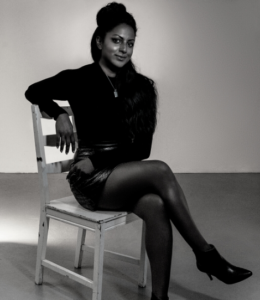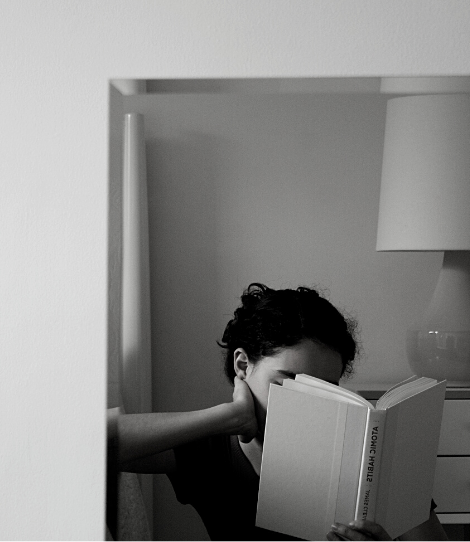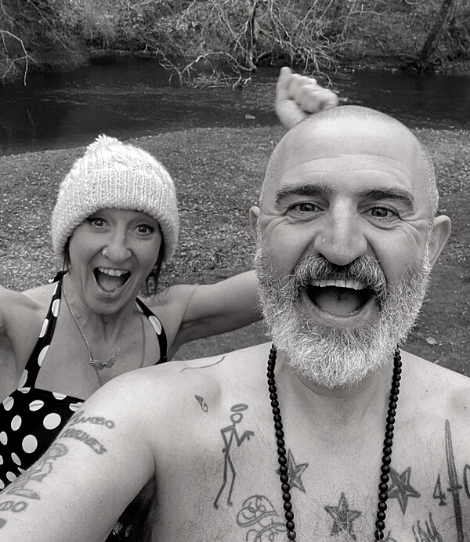
How do you hold on to your sanity when you feel that your own body is trying to force you to give up? When your overwhelming feelings of darkness are dismissed as just part of “being a woman”?
I have never spoken about this, but I think the time has come to shine a light on how the lack of life education for women in South Asian communities has negatively impacted the last 38 years of mine. And continues to affect others every single day.
My unexplained mental health crisis
From a young age, I suffered from what I thought was an unexplainable depression. From cutting myself as a teenager to ongoing suicidal thoughts and attempts to end my life that left me hospitalised and quite frankly lucky to be alive today.
I grew up in quite a traditional Sri Lankan, Buddhist family where ‘mental health’ issues amongst many other things were deemed as subjects never to be acknowledged or spoken about. My dad passed away when I was only10 years old and my mum instantly stepped into the role of being a strict disciplinarian. She projected this incredible, unwavering strength, but rarely showed emotion.
My years of silence
Sharing my depression felt like a sign of weakness and I didn’t want to let her down or bring “shame to the family’”– a phrase I heard constantly growing up. So instead, I bottled everything up, became extremely guarded and learnt pretty quickly how to act like everything was fine.
It wasn’t fine of course, and I now realise that my own agreeing to never talk about so-called taboo subjects within my UK South Asian community was neither healthy or empowering. Mostly because these “taboo” subjects usually have a knock on effect to the health and well-being of the women in the community. Depression, as I already explained, is never acknowledged. Nor, more crucially, is there ever any dialogue around menstruation.
Menstruation: a ‘dirty’ word
From strange religious traditions like accepting I couldn’t enter the kitchen of my teenage best friend’s house if I was having my period – to do so would mean her mum would spend the rest of the day chanting prayers and waving sticks to cleanse away the evil spirits I’d supposedly left behind. To finding myself as a grown-up woman having to delicately explain to my 30 something year old South Asian girlfriends how to use a tampon. Menstruation, was a dirty word.
Partly as a result of this complete cultural clampdown on conversations about women’s health, what I didn’t realise growing up was that my life-threatening depressions and chronic mood swings were due to a condition called Premenstrual Dysphoric Disorder otherwise known as PMDD. It’s basically a severe form of PMS — and that in itself probably doesn’t sound like a serious thing — but after living with it for most of my life, believe me when I say it is.
Finally getting a diagnosis
PMDD has been classed as a disability under the Equality Act 2010 and affects upwards of a million women in the UK, although upwards of 90 per cent of them have no formal diagnosis. My own diagnosis was finally confirmed by a private gynaecologist 2 years ago – but only after I’d wasted countless years with GPs who told me I was being silly, followed by psychiatrists and psychotherapists who seemed completely unaware of what my condition was.
The officially recognised list of symptoms are long and often scary. They can include a constant state of agitation or nervousness, crying spells that make you feel out of control, terrifying paranoia and thoughts of suicide, alongside physical issues like constipation, diarrhoea, nausea, vomiting, dizziness and muscle spasms. As sufferers enter midlife and the menopause, the symptoms tend to get worse and have resulted in women being sectioned if they are not diagnosed properly.
What PMDD feels like to me
My own symptoms are wide-ranging: from feeling worthless, having difficulty concentrating, feeling overwhelmed, forgetfulness, a lack of energy, being on edge, headaches, sleep problems, weight gain, fear of rejection, severe depression and a crushing desire to take my own life.
Over the years I have lost valuable relationships due to my PMDD and the lack of understanding I, and they, had around it’s pernicious grip on my life. I was a closed book to even my closest of friends and basic tasks like getting out of bed and getting dressed were a constant challenge.
A monthly cycle of despair
I think a fellow sufferer described it best in a discussion with the mental health charity Mind when she said: “Once a month – I let my life (my normally very happy and satisfying life…) implode around me. Then, when the dark thoughts lifted and completely cleared, I spent the next two weeks trying to pick up the pieces.”
That’s for two weeks every month, and it’s exhausting to know that once it finally passes you have to brace yourself for it to happen all over again in a couple of weeks’ time. And this has been happening on repeat since the day I got my first period at 11 years old, completely cut off from any support system and met with only a wall of silence from within the South Asian community.
It’s an incredibly disabling condition that prevents you from doing the simplest of tasks, destroys relationships and stops you from being able to live a ‘normal’ life. To be honest, I’m surprised I’ve made it this far.
My moment of clarity about PMDD
Discovering that I wasn’t going insane, and instead realising that I had an illness which had a name and knowing that there were others going through the same thing, felt like a huge weight had been lifted from my shoulders. All these years I thought I was alone and that I was broken beyond reason but knowing it was something I had no actual control over gave me a weird sense of relief that it wasn’t my fault.
In terms of treatment, there are oestrogen gels or patches that can be used to suppress the menstrual cycle and these have had some success with some women, but for many, myself included, there is no total cure apart from a surgically induced menopause (hysterectomy with ovary removal), but for now I’m trialing anti-depressants in the hope that I won’t have to go under the knife.
How South Asian mothers can help
My mum is an incredible woman and I’m proud of the way she raised three children on her own in a completely new country. What she did for us took incredible strength. But what I think the next generation of South Asian mothers need a different kind of strength.
They need to break down this wall of silence and be as open and honest with their daughters as they can be. Let’s remove the cultural stigmas around sex, periods, puberty and mental health and ensure that they feel fully supported and equipped to deal with anything that comes their way. For PMDD sufferers like me, it could mean the difference between life and death.
Sachini Imbuldeniya
Get more information about PMDD and support from Mind.
Sachini Imbuldeniya is founder of Studio Pi and a champion of diversity in the design industry. She is a member of Noon’s Advisory Board.
joy
View All
The best midlife crisis books for women
Reading can get your though the tough times in life, says Sam Baker, including menopause.

Cold water swimming cured my panic attacks
Breathing, immersion in freezing lakes and comraderie helped Sharing Miranda Bailey heal herself

Picture: Getty Images
Skin hunger: Understanding the need to be touched
Lynn Ruth Miller has a satisfying life. She just needs to be touched.

Picture: Getty Images, posed by models
The reality of coping with anorexia
One mother reveals what the unvarnished truth of parenting a child with anorexia


